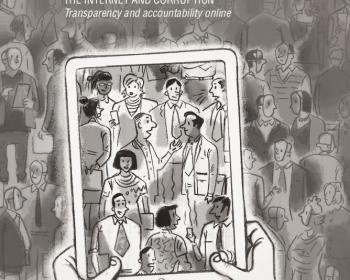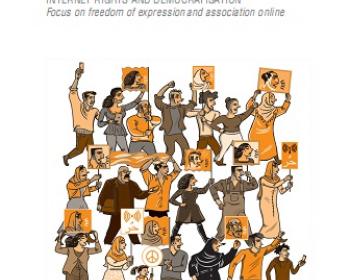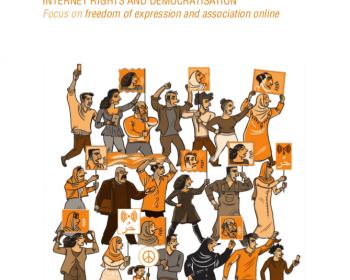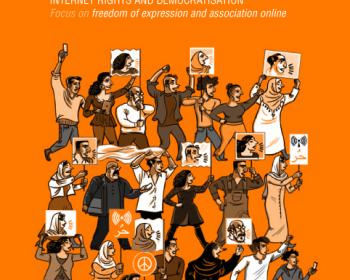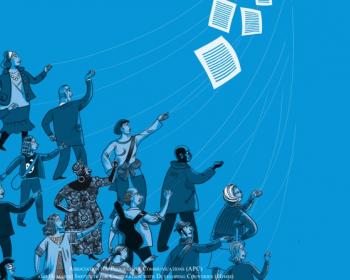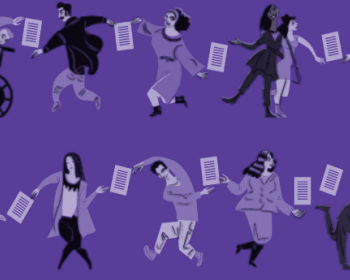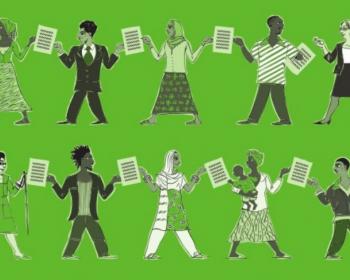Humanist Institute for Cooperation with Developing Countries (Hivos)
A fair, free and sustainable world – that is what Hivos, the Humanist Institute for Development Cooperation, wants to contribute to. Together with local organisations in developing countries, Hivos strives for a world in which all citizens – both men and women – have equal access to resources and opportunities for development. Hivos headquarters are in The Hague.
Hivos first provided support to APC’s Africa Women’s Programme in preparing for Beijing+5, as well as our internet rights work through the Global ICT Policy Monitor project, with a focus on activities in Latin America and Africa. In 2001, 2002 and 2003, Hivos continued to fund the Africa Women’s Programme and the Global ICT Policy Monitor project.
In 2005 the organisation provided support to GenARDIS and the Global ICT Policy Monitor, and in 2004 to APC-Africa-Women, the Global Gender and ICT Forum and the Global ICT Policy Monitor. Hivos funded both the Global ICT Policy Monitor project (with core support to CIPP and APC-Africa-Women) and the GenARDIS project in 2006. In 2008 Hivos provided support for the Africa ICT Policy Monitor; Engaging Policy and Practice project (CIPP/WNSP – AAW) (1 Jan 2005 to 31 Dec 2008) and in 2012, Hivos provided support for APC’s Strategic Action Plan for the period 2009 – 2012.
From 2008 until 2015, Hivos was a funder-partner for the annual Global Information Society Watch.
At a workshop on internet governance in the MENA region, held from 16 to 19 March 2013 in Tunis, APC presented “IG and Policy: Anchoring and Safeguarding internet Openness in the Middle East and North Africa,” a workshop on civil society engagement in IG and public policy.
GISWatch 2012 explores how the internet is being used to ensure transparency and accountability, the challenges that civil society activists face in fighting corruption, and when the internet fails as an enabler of a transparent and fair society.
On 7 November 2012, on the second day of the IGF, APC and Hivos will launch the 2012 edition of the Global Information Society Watch, which focuses on the internet and corruption. The launch will take place in Room 9 of the Baku Expo Centre, Baku, Azerbaijan, at 12:30 local time.
This publication is a follow-up to the 2011 edition of Global Information Society Watch (GISWatch), which looked at internet rights and democratisation, with a focus on freedom of expression and association online.
The 2011 edition of the Global Information Society Watch, titled “Internet Rights and Democratization: focus on freedom of expression and association online” has published the first in a series of updates on six country reports. This special edition contains updates from Argentina, Azerbaijan, Indonesia, Pakistan, Saudi Arabia and South Africa as well as an introduction from the Electronic ...
APC and Hivos investigate how governments and internet and mobile phone companies are restricting freedom online – and how citizens are responding using the very same technology.
Reports from around the world on the impacts of technology consumption and e-waste on the environment. Also includes seven expert reports including one on smart and green grassroots technologies.
The knowledge-sharing workshop will be a space to enable the 15 grantees to share outcomes as well as to discuss best practices and lessons learned. It will also be used to gather case studies and stories to feed into the ongoing programmes of partner institutions, as well as for GenARDIS’ own evaluation process. The workshop methodology will be interactive, creative and use different methodo...
The Global Information Society Watch 2009 report unpacks the key issues impacting on access to online information and knowledge, including discussions on intellectual property rights, knowledge rights, open standards and access to educational materials and libraries.
How do we ensure access to the internet is a human right enjoyed by all? This is one of the critical questions asked by GISWatch 2008, which highlights the importance of people’s access to ICT infrastructure, where and how countries are getting it right or wrong, and what can be done about it.

Association for Progressive Communications (APC) 2022
Unless otherwise stated, content on the APC website is licensed under Creative Commons Attribution 4.0 International (CC BY 4.0)



